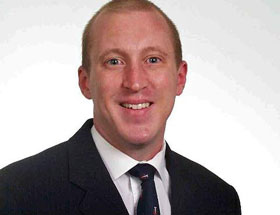Analytics, Economics, Education and Science, Estonia
International Internet Magazine. Baltic States news & analytics
Friday, 16.05.2025, 03:03
EBS expert: Estonia's main economic assets are youngsters
 Print version
Print version |
|---|
| Dr. Robert Pefferly Jr. |
As Dr. Robert Pefferly reports, Estonia has just gone through a traditional classic bubble with prices fluctuating around" a strange attractor based upon (real) fundamentals".
"It used to take about 20 years to repeat the cycle, now it seems to take approximately from five –nine years to go through the entire cycle. The information technology revolution (now over 120 years old) seems to be increasing our [Estonian] cycle speeds too. We are somewhere between the moment when people just cannot handle the situation any more (no jobs, graduates cannot get hired, people protest…) and the beginning of the recovery," the expert notes.
The economist considers that the crisis has affected the economy of Estonia in many ways, still he points at positive aspects of the Estonian economy, writes LETA.
"Generally, it is not as bad as most people think and it is not as good as most people believe too. Estonian Economics is Microeconomics. There are only approximately 1.3 million people here so this is not a macro economy. That said, Estonia is influenced more by outside exogenous macroeconomic trends, so the recent food price increases and Chinese wage increases do affect Estonia more than some others," the expert highlights.
The experts has also commented on price level in Estonia: "There are also some strange events that really just do not make sense. Prices have maintained and/or increased because business owners have to maintain profits. This nominal effect is troublesome because I do not see the real growth or increase in quality. This makes no sense. In addition, the level of unemployment and underemployment is scandalous. But it all gets hidden by the registered unemployment game administrators play. Although there has been a world crisis, a lot of Estonia's economic wounds have been self-inflicted".
Estonia's main economic assets are youngsters, according to the expert.
"Unfortunately the Estonian government and business leaders seem intent on driving the best and brightest out of this country. While letting too many not increase their human capital skills. Estonia does not experience a brain drain; it experiences a brain river flowing out. If the Estonian government could grow its way out of the situation, that would be great," Mr. Robert Pefferly says.
The expert also pointed at corruption, incompetence, non-delivery of basic services, and overpaid administrators in Estonia in his interview to Estonian Free Press.
"The worst offenders are the administrators at the top who are supposed to be "visionaries" – really quite depressing to watch. I really wish some young people would start to do something politically in this country. Where are Estonia's young leaders?" the economist claims.
Commenting on the influence of the arrival of euro on Estonian economy, Mr. Robert Pefferly sees no impressive effect at all: "It will not affect it at all. This decision stopped being about economics late last year. This has been more of a political contest for the past six-ten months. Sovereign wealth/debt are going to be one of the main problems in 2010-2025. But that will not affect Estonia in 2011".
Answering a question about possible increase in deficit after joining the euro zone, the expert avoided from particular prognoses, noting that it "will have both beneficial (nominal) effects and detrimental (real) effects".
"I have been thinking about what happens to the deficit and I can argue both ways depending upon what assumptions I make. So what I need to see is which assumptions fail before I can see a clear vision on what the probable path is for the deficit. My gut tells me to be pessimistic, but really, I have no clear vision on this matter. It is like the world cup this year, no clear vision on who to cheer for," Robert Pefferly said.








 «The Baltic Course» Is Sold and Stays in Business!
«The Baltic Course» Is Sold and Stays in Business!

